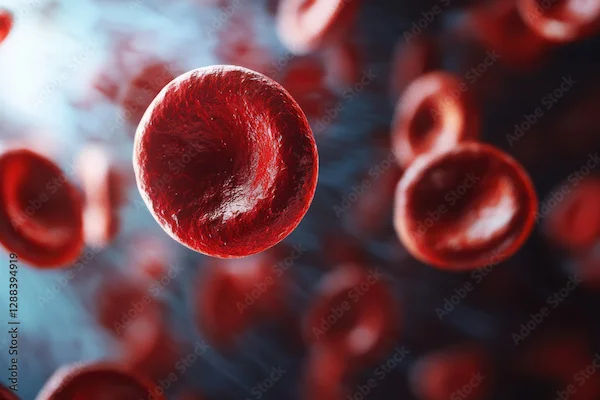Understanding Stomach Bloating and Remedies
Discover the causes of stomach bloating and learn natural remedies, dietary tips, and lifestyle changes to relieve discomfort and support better digestion.

Written by Dr. Dhankecha Mayank Dineshbhai
Reviewed by Dr. Vasanthasree Nair MBBS
Last updated on 8th Aug, 2025

Introduction
Stomach bloating is a common issue that many people experience at some point in their lives. It can be uncomfortable, sometimes painful, and may leave you feeling sluggish. The good news is that bloating is often manageable with simple lifestyle changes and home remedies. In this article, we’ll explore what causes bloating, how it affects your health, and practical ways to reduce it.
What Is Stomach Bloating?
Bloating is a feeling of fullness, tightness, or swelling in the abdomen. It may be accompanied by gas, burping, or discomfort. While occasional bloating is normal, frequent or severe bloating could indicate an underlying digestive issue.
Common Causes of Bloating
Understanding what triggers bloating can help you prevent or manage it better. Some common causes include:
1. Gas Buildup – Swallowing air while eating, drinking carbonated beverages, or bacterial fermentation of undigested food in the gut can lead to gas.
2. Overeating – Eating large meals can stretch your stomach and cause bloating.
3. Food Intolerances – Some people are sensitive to lactose (found in dairy), gluten (in wheat), or FODMAPs (fermentable carbs in certain foods).
4. Constipation – When stool builds up in the colon, it can cause bloating and discomfort.
5. Digestive Disorders – Conditions like irritable bowel syndrome (IBS), acid reflux, or small intestinal bacterial overgrowth (SIBO) may contribute to bloating.
6. Hormonal Changes – Many women experience bloating before or during their menstrual cycle due to water retention.
7. Swallowing Air – Habits like chewing gum, drinking through a straw, or talking while eating can increase air intake.
Symptoms of Bloating
Bloating can present in different ways, including:
A visibly swollen or distended belly
Feeling uncomfortably full after meals
Excessive gas (burping or flatulence)
Mild to moderate abdominal pain
Rumbling or gurgling sounds in the stomach
If bloating is accompanied by severe pain, vomiting, diarrhoea, or unexplained weight loss, consult a doctor, as it could signal a more serious condition.
How to Reduce Bloating Naturally
1. Adjust Your Eating Habits
Eat Slowly – Chew food thoroughly to aid digestion and reduce air swallowing.
Smaller, Frequent Meals – Instead of three large meals, opt for 4-5 smaller portions to prevent overloading your stomach.
Avoid Carbonated Drinks – Sodas and fizzy drinks can trap gas in your stomach.
Consult Top Nutritionists
2. Choose the Right Foods
Limit Gas-Producing Foods – Beans, lentils, broccoli, cabbage, and onions can cause gas.
Reduce Salt Intake – Excess salt leads to water retention, worsening bloating.
Probiotic-Rich Foods – Yoghurt, kefir, and fermented foods support gut health and digestion.
Stay Hydrated – Drinking enough water helps prevent constipation and bloating.
3. Exercise and Movement
Gentle physical activity, like walking or yoga, can stimulate digestion and relieve gas buildup.
4. Herbal Remedies
Peppermint Tea – Helps relax digestive muscles and reduce bloating.
Ginger – A natural anti-inflammatory that aids digestion.
Fennel Seeds – Chewing a teaspoon after meals can ease bloating.
5. Manage Stress
Stress can disrupt digestion, leading to bloating. Practices like deep breathing, meditation, or light exercise can help.
When to See a Doctor
While bloating is usually harmless, consult a healthcare professional if you experience:
Persistent bloating lasting more than a week
Severe pain or cramps
Blood in stool
Unexplained weight loss
Frequent diarrhoea or constipation
These could indicate conditions like IBS, celiac disease, or other digestive disorders that need medical attention.
Final Thoughts
Stomach bloating is a common but manageable issue. By making simple dietary and lifestyle changes, you can significantly reduce discomfort. However, if bloating persists or worsens, it’s best to seek medical advice.
Need personalised guidance? You can consult a gastroenterologist or nutritionist through Apollo 24|7 to get expertzadvice tailored to your needs. Book an appointment today and take the first step towards better digestive health!
Consult Top Nutritionists
Consult Top Nutritionists

Dr. Ramalinga Reddy
General Physician
5 Years • MBBS MD General medicine
Bengaluru
PRESTIGE SHANTHINIKETAN - SOCIETY CLINIC, Bengaluru
Dt. Ila Sharma
Clinical Nutritionist
18 Years • Master in food & Nutrition
Gurugram
VIPUL GREENS - SOCIETY CLINIC, Gurugram
Ms. Bhavana Shetty
Dietician
7 Years • DDHN & Masters in Clinical Nutrition & Dietetics
Bangalore
Apollo Sugar Clinic, Seetha circle bangalore, Bangalore
Dr Sumanth R
General Physician
2 Years • MBBS
Bengaluru
PRESTIGE SHANTHINIKETAN - SOCIETY CLINIC, Bengaluru
Mrs Sneha P V
Nutritionist
10 Years • Master of science in Food and Nutrition
Bangalore
Apollo Clinic Bellandur, Bangalore
Consult Top Nutritionists

Dr. Ramalinga Reddy
General Physician
5 Years • MBBS MD General medicine
Bengaluru
PRESTIGE SHANTHINIKETAN - SOCIETY CLINIC, Bengaluru
Dt. Ila Sharma
Clinical Nutritionist
18 Years • Master in food & Nutrition
Gurugram
VIPUL GREENS - SOCIETY CLINIC, Gurugram
Ms. Bhavana Shetty
Dietician
7 Years • DDHN & Masters in Clinical Nutrition & Dietetics
Bangalore
Apollo Sugar Clinic, Seetha circle bangalore, Bangalore
Dr Sumanth R
General Physician
2 Years • MBBS
Bengaluru
PRESTIGE SHANTHINIKETAN - SOCIETY CLINIC, Bengaluru
Mrs Sneha P V
Nutritionist
10 Years • Master of science in Food and Nutrition
Bangalore
Apollo Clinic Bellandur, Bangalore
.webp)



